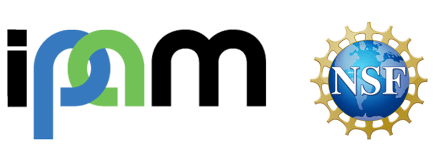Computational Methods in Transport
Overview
The Computational Methods in Transport Workshop is a workshop devoted to providing a forum where computational transport researchers in a variety of disciplines can communicate across disciplinary boundaries their methods and their methods successes and failures. In 2004 we had an exciting meeting where researchers from a variety of disciplines met and exchanged information and established new collaborations. As in 2004, this year’s meeting tries to address the problem that numerical methods used in a given field are communicated to other researchers in that field but rarely are the methods communicated outside of that specific field. The goal of the Computational Methods in Transport Workshop is to open channels of communication and cooperation so that (1) existing methods used in one field can be applied to other fields (2) greater scientific resource can be brought to bear on the unsolved outstanding problems.
This year’s topic is one that cuts across disciplinary boundaries. That is verification and validation in the field of particle transport. Verification addresses the question are we solving the equations correctly while validation addresses the question are we solving the correct equations? Therefore, the focus of Granlibakken 06 is trying to understand quantitatively how good the answers we get from our transport code really are given the physical and numerical uncertainties inherent in any simulation. In other words are our simulation results a true representation of reality or are they just a “computer game”. At this workshop, we will learn what the astrophysicist, atmospheric scientist, or nuclear engineer do to assess the accuracy of their code. What convergence studies, what error analysis, what problems do each field use to benchmark their codes are some of the questions each of us are confronted with in our simulations. Is there a need for new benchmark problems? Are there experiments that can be used to help validate the simulation results? If not, can we propose new experiments in facilities such as NIF, OMEGA, or Z that could address these issues?
Attendees are from national laboratories, academia and industry. Attendance at the conference is limited to 100; we intentionally keep the conference small to preserve the level of interaction and discussion among attendees.
Our program begins with a keynote address Saturday evening, and it ends on Thursday at lunch. In between, we offer outstanding speakers and provide ample time for discussions. Our hope is that this workshop will provide an excellent venue to network with colleagues and relax in the beautiful surroundings of Lake Tahoe and the High Sierras.
Registration for the conference begins at 3:30 on Saturday September 9. From the Keynote Address Saturday evening through the closing session on Thursday morning, we believe we have an outstanding program. Due to the interdisciplinary nature of this workshop, Sunday will be devoted to a series of talks devoted to the science of verification, validation, and uncertainty quantification. The remaining sessions will be invited talks targeted towards a diverse audience. Most days will close with a monitored discussion session. Tuesday afternoon is devoted to a poster session. You are encouraged to submit a poster for what we hope is a lively and engaging afternoon. A copy of the conference theme has been included for your review. We strongly urge you to arrive Saturday afternoon and plan to stay until the formal program ends.
For further information, contact:
Frank R. Graziani Melissa Ramirez
(925)422-4803 (925)423-2559
graziani1@llnl.gov ramirez34@llnl.gov
Organizing Committee
